We have lost a master of the arts, and the best David Lynch movies and shows will officially go down in history as some of the greats. David Lynch, the unique creative mind behind such game-changing works as Eraserhead, Mulholland Drive, Blue Velvet, and Twin Peaks, has passed away at the age of 78, leaving the world a more strange and magical place than when he entered it.
Lynch’s legacy is one of great love: for the man, and for his work. The outpouring of disbelief and veneration at the news of Lynch’s death has perhaps not been seen since we lost David Bowie almost a decade ago. And even the fact that these two great artists collaborated in their work is a gift that somehow holds a kind of dreamlike weight. Like Bowie, Lynch was a visionary. A one of a kind. A weaver of surreal dreams. A creator of some of the best movies that changed the people who lived within his world and were fortunate enough to be shown a glimpse inside his head. Like Bowie, Lynch is irreplaceable but leaves us with a body of work that is as boldly entertaining and baffling as it is important.
It may seem impossible to attempt a ranking of a filmography as exceptional as David Lynch’s, but we wanted to pay homage to his extraordinary contribution to cinema (and TV) and potentially provide any newcomers with a cheat sheet of where they might like to dive in. Lynch made so many five-star masterpieces that the top entries in our ranking are pretty interchangeable based on mood, time of day, and even the weather… but with a collection of films like his, there’s really no bad place to begin.
10. Inland Empire
Year: 2006
It’s funny to say with a filmmaker like David Lynch that this one is…’weird’, but with perhaps his most experimental feature, the director created something truly surreal. Filmed entirely by Lynch himself using a low-resolution digital camcorder and shot largely on a scene-by-scene basis without a complete screenplay, Inland Empire has proven polarising amongst even the most die-hard fans, but nearly 20 years after its release, many regard it as an underrated gem.
Starring Laura Dern as an actress who begins to embody the personality of her character in a supposedly cursed film production, it also features other frequent Lynch collaborators Harry Dean Stanton, Justin Theroux, and Grace Zabriskie, as well as Jeremy Irons, Nastassja Kinski, William H. Macy, Mary Steenburgen, and Terry Crews. Inland Empire will now go down in cinema history as David Lynch’s final feature film.
Read our Inland Empire review for more information.
9. The Straight Story
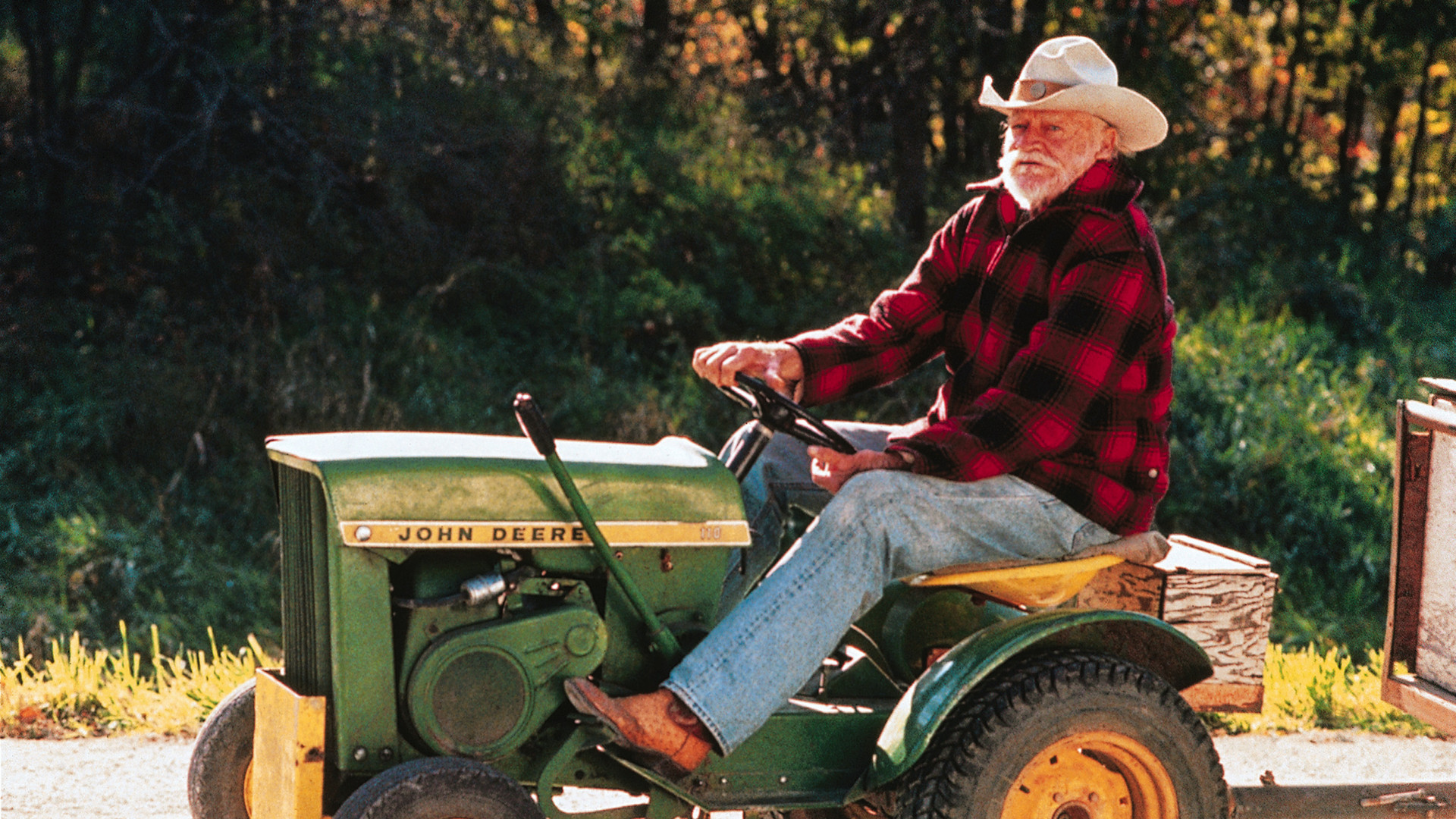
Year: 1999
Walt Disney and David Lynch may not sound like the most natural match, but when the company released The Straight Story in the United States, it did so to great critical success. A biographical story about one man’s 240-mile road trip on a John Deere tractor to visit his estranged brother before he dies, the film was nominated for the Palme d’Or at the 1999 Cannes Film Festival and Richard Farnsworth received a nomination for the Best Actor Oscar for his portrayal of the real life Alvin Straight.
The subject matter may be uncharacteristic in Lynch’s oeuvre, but The Straight Story paints a picture of simple life and Americana with the director’s dreamlike and unsentimental brush. Sissy Spacek also stars as Alvin’s daughter, Rose, and Lynch’s longtime musical collaborator Angelo Badalamenti provides the score. An accessible entry into the master filmmaker’s canon, The Straight Story more than deserves a place amongst his greatest works.
8. Lost Highway
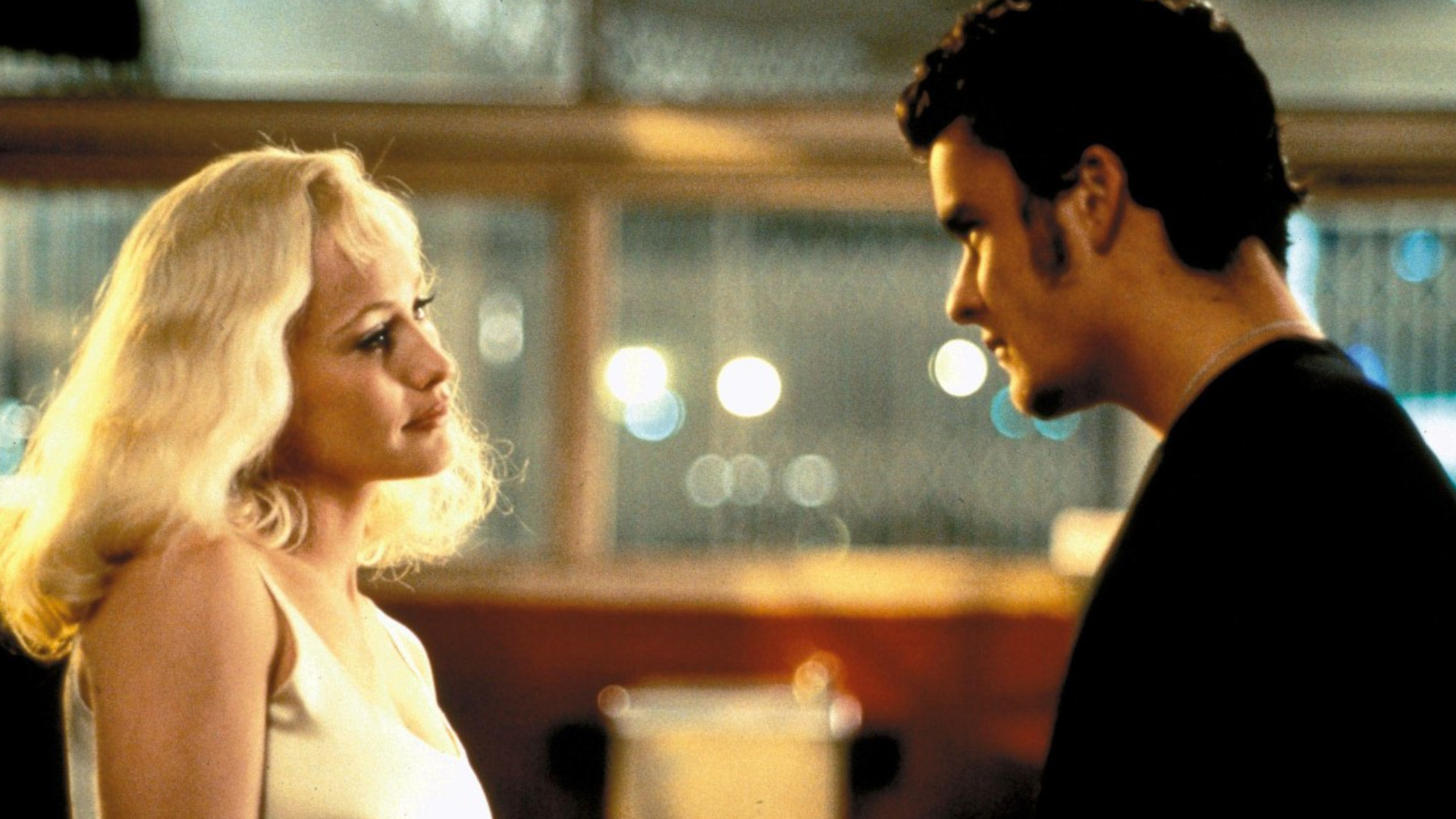
Year: 1997
David Lynch’s cinematic use of themes and techniques like illogical action, mysterious characters, doppelgangers and their impact on perceived identity, and mind-bending narrative structure is well recognized, and Lost Highway is a glorious example of his exploration of nightmarish storytelling. One of Lynch’s ‘Los Angeles films’ (along with Inland Empire and Mulholland Drive), Lost Highway is a late-90s film noir that follows Bill Pullman’s musician Fred Madison and his wife Renee (Patricia Arquette) as they navigate threatening VHS tapes, murder and false accusations amidst the Hollywood Hills.
The soundtrack was produced by Nine Inch Nails’ Trent Reznor and features music from artists like David Bowie, Rammstein and The Smashing Pumpkins, as well as an original score by Barry Adamson and Angelo Badalamenti. Although the film received a mixed reception from critics upon release, it has garnered a cult following in the subsequent decades and is now seen to sit amongst the quintessential Lynch pictures.
Check out our Lost Highway review for more details.
7. Twin Peaks: Fire Walk With Me
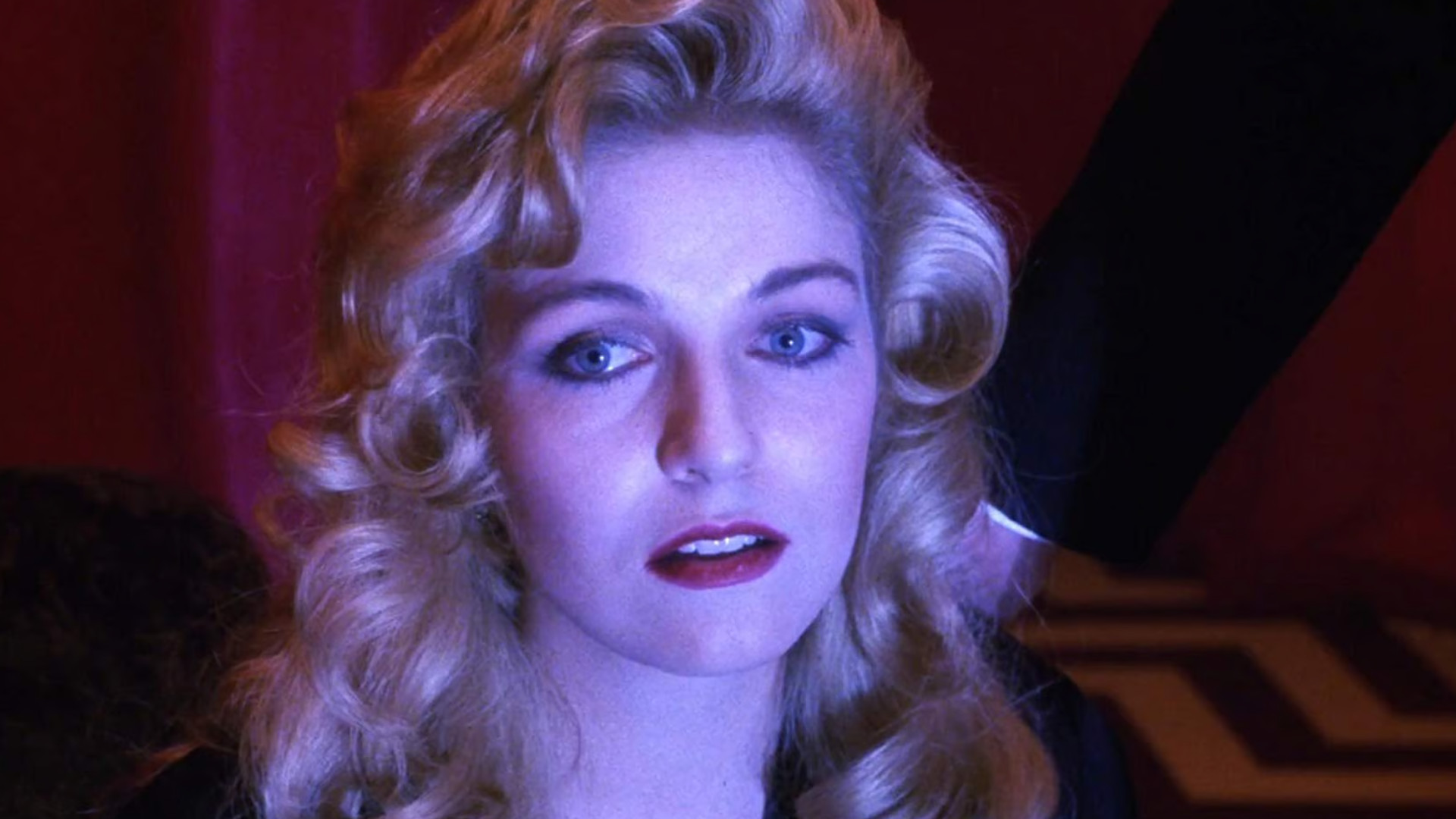
Year: 1992
Following the rabid success of Twin Peaks, which saw early ’90s television fans huddled around the water cooler desperately trying to figure out who killed Laura Palmer, the show ended after its second season leaving a huge gap in interesting TV programming, as well as more than a few people still scratching their heads. But David Lynch wasn’t done with the story of Laura and Twin Peaks, and in 1992 he gave us a feature film prequel: Fire Walk With Me.
An altogether darker and more heart-breaking piece of work, the film tells the story of Laura Palmer’s last days, bringing back notable cast members from the show, including Sheryl Lee, Ray Wise, Grace Zabriskie, Kyle MacLachlan, Madchen Amick, and Dana Ashbrook, alongside other familiar faces like Davie Bowie and Kiefer Sutherland. Probably best watched in between season 2 of Twin Peaks and 2017’s The Return (more on those to come), Fire Walk With Me can also be enjoyed if you’ve never seen the show, succeeding as a stylish, nightmarish gut-punch of a horror movie about one teenage girl’s descent into tragedy.
6. Wild at Heart
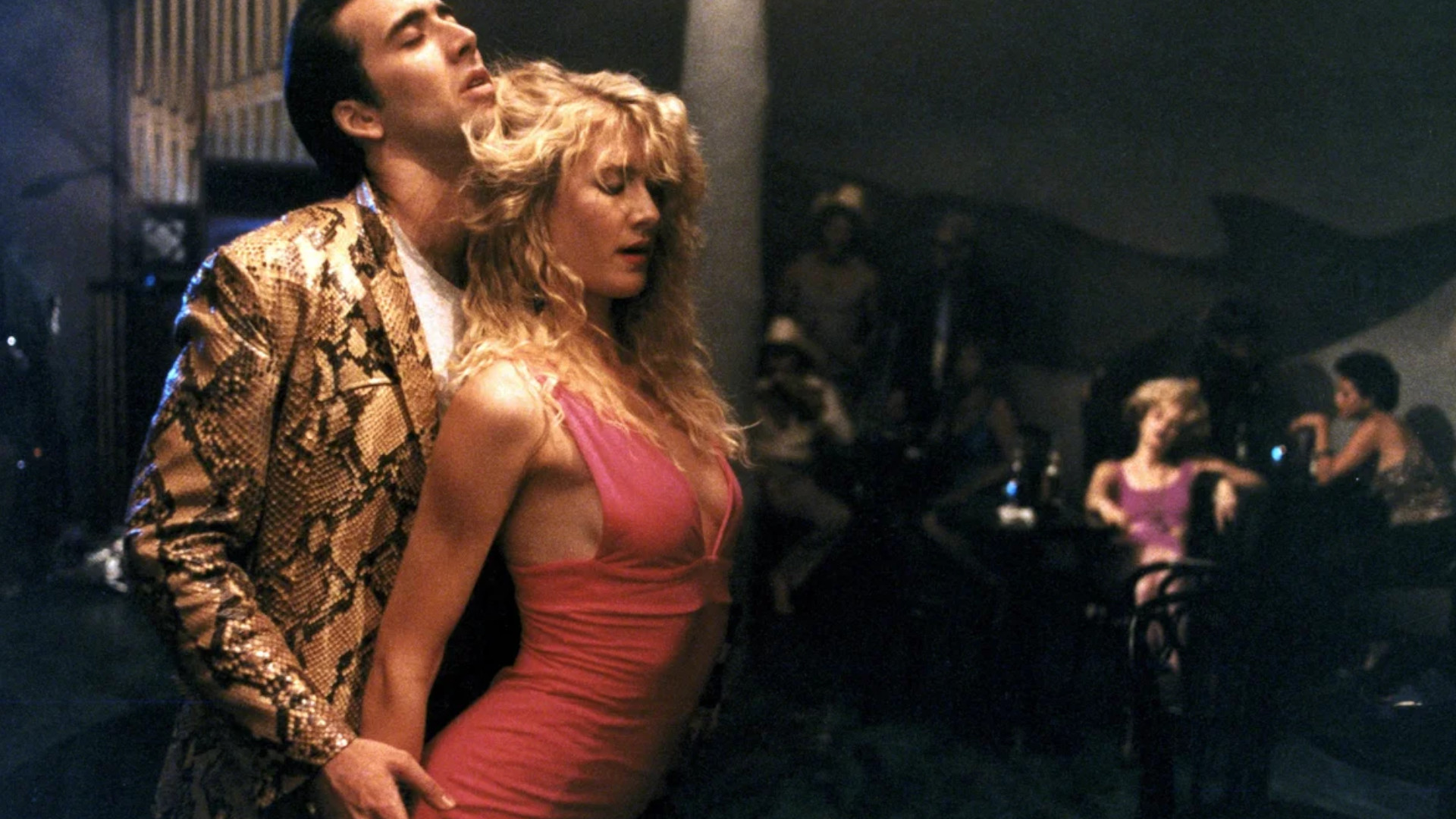
Year: 1990
Laura Dern and David Lynch’s creative partnership will go down as one of the most prolific and fruitful in cinema history, and teaming up his muse with the electrifying Nicolas Cage for the romantic crime picture Wild at Heart was a genius move. The film follows Cage’s Sailor Ripley and Dern’s Lula Fortune, young lovers on the run from Lula’s mother and the criminals she hires to kill Sailor.
Based on the novel of the same name by Barry Gifford, Wild at Heart is a sexy and frenetic ride that won the Palme d’Or at Cannes in 1990, plus an Independent Spirit Award for its cinematography, and also hosts stellar performances from Willem Dafoe, Diane Ladd, Isabella Rossellini, Harry Dean Stanton, and Crispin Glover. Exploring the dark side of America through a passionate love affair and tributes to iconic pop culture fare like The Wizard of Oz and Elvis Presley, Wild at Heart helped to establish Lynch as one of the most exciting and innovative filmmakers of his generation.
5. The Elephant Man
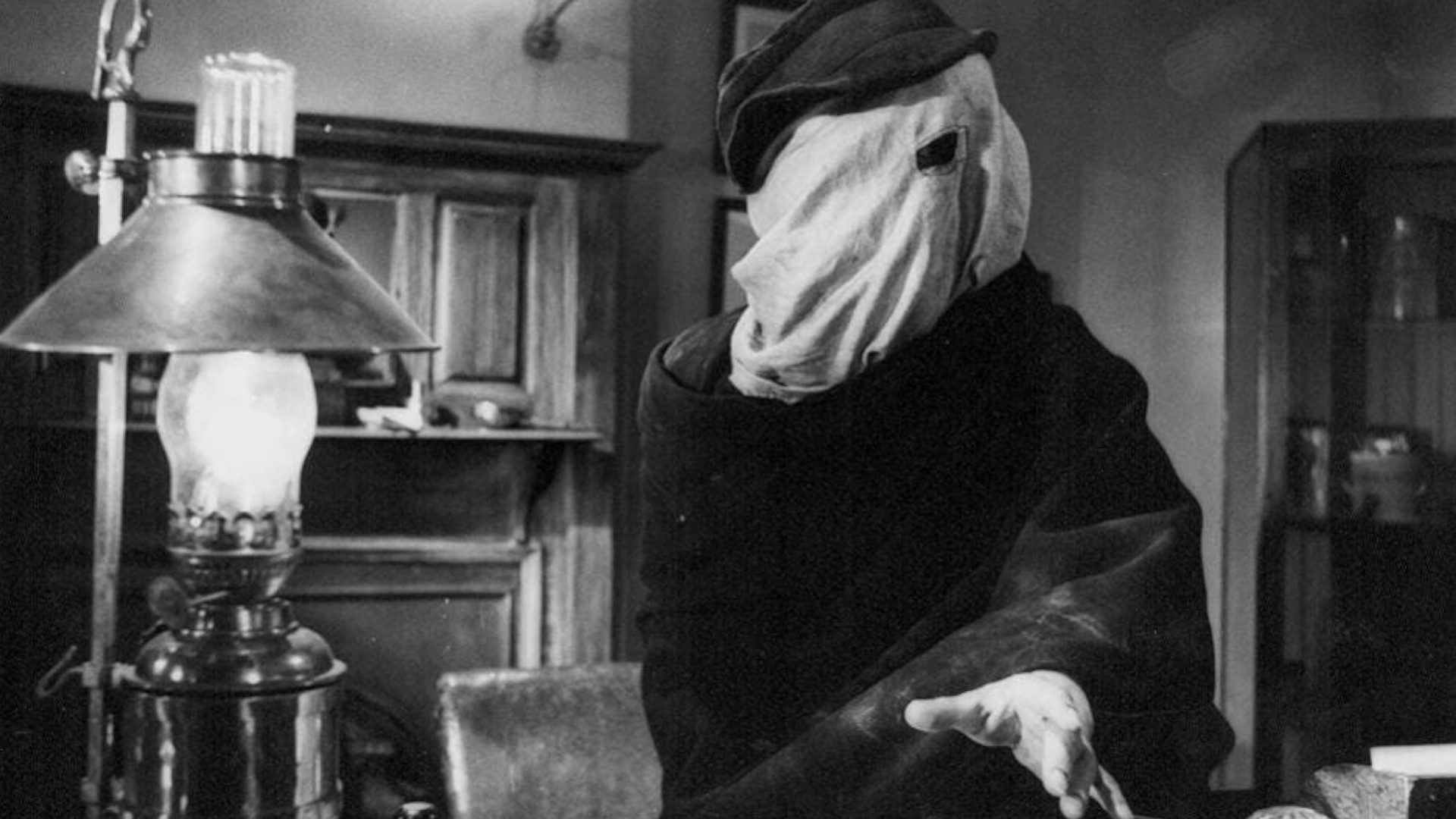
Year: 1980
One of David Lynch’s most appreciated works in terms of audience acclaim and awards recognition, The Elephant Man is a biographical work loosely based on the life of John Merrick, a man with a severe physical affliction in 19th Century London, played by the incredible John Hurt. Lynch’s exploration of human dignity is a deeply empathetic work, seeing Merrick go from side-show curiosity to the beloved and respected friend of Anthony Hopkins’ Dr Frederick Treves, and the black and white film looks stunning while it does it.
The Elephant Man received Academy Award nominations for Best Picture, Best Actor (Hurt), Art Direction, Costume Design, Editing, Music, and Adapted Screenplay, and although it didn’t win any, the film did inspire the Academy to introduce the Best Makeup category the following year after industry outcry about its being overlooked. The Elephant Man is one of Lynch’s more accessible and mainstream films, garnering both critical and commercial success without sacrificing any of the director’s characteristic vision.
Next, read our list of the best Oscar-winning movies.
4. Mulholland Drive
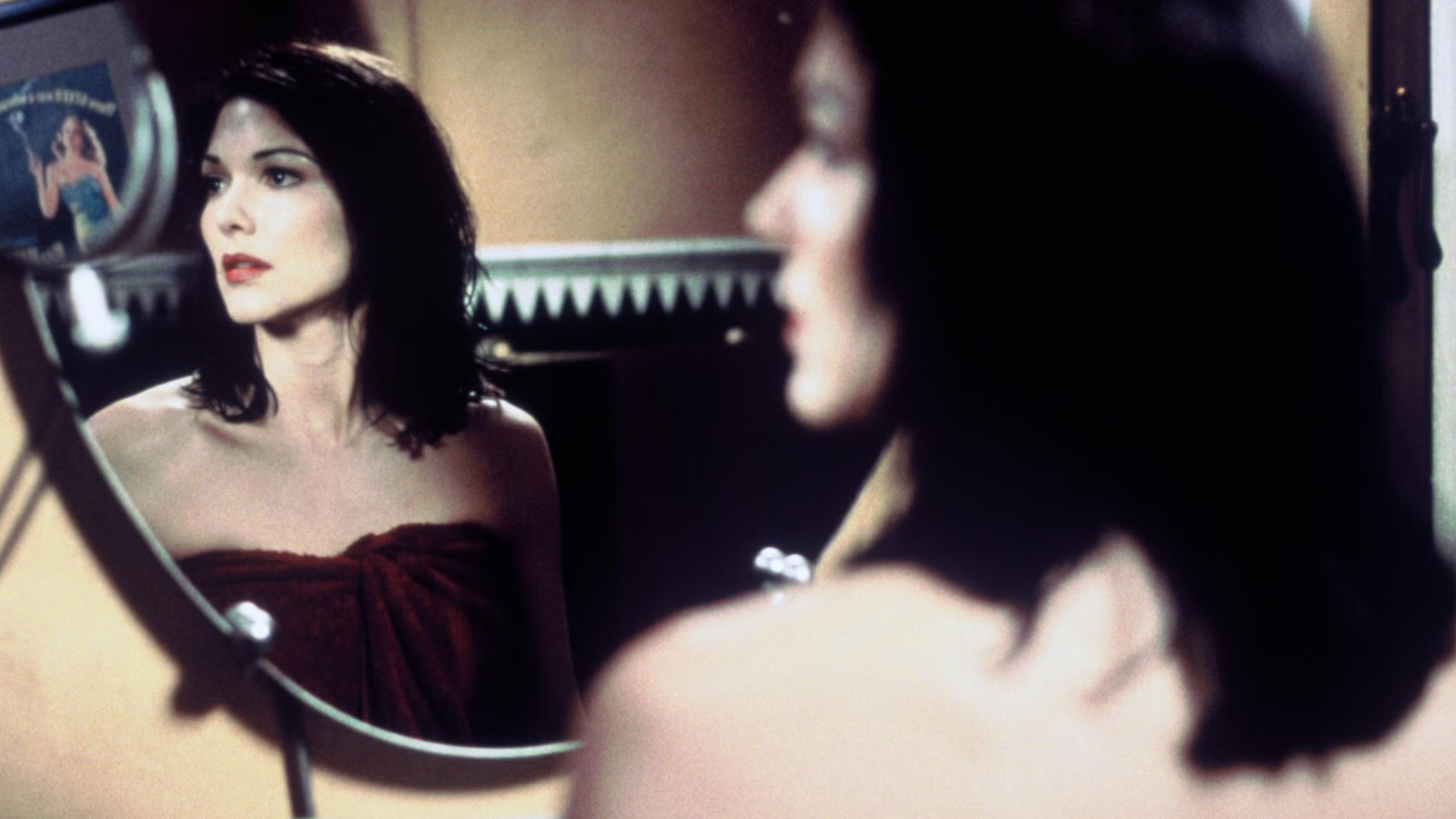
Year: 2001
A love story in the city of dreams, Mulholland Dr. was David Lynch’s ninth feature, and the fact that he was still producing this level of masterpiece at that stage in his career is nothing less than remarkable. The film stars Naomi Watts as an aspiring actress who arrives in LA and befriends a woman suffering from amnesia (Laura Harring) following a car crash, and it develops into a brain-spinning neo-noir work of dreams, alternative realities, Hollywood satire, romance and symbolism that has inspired nearly 25 years of furious interpretation.
Amongst is various accolades, Mulholland Drive earned Lynch the Best Director award at the 2001 Cannes Film Festival and an Oscar nomination to boot, along with wins for Watts as Best Actress and the movie’s cinematography at a number of ceremonies, was ranked as the eighth greatest film ever made in the BFI’s 2022 Sight & Sound poll, and voted the greatest film of the 21st century by BBC Culture in 2016. A beautifully immersive work of art that rewards repeat viewings, Mulholland Drive will take you down the rabbit hole in a dark fairytale imagining of Los Angeles and linger in your brain long after the credits roll.
For more on one of the best thriller movies ever made, read our Mulholland Drive review.
3. Eraserhead
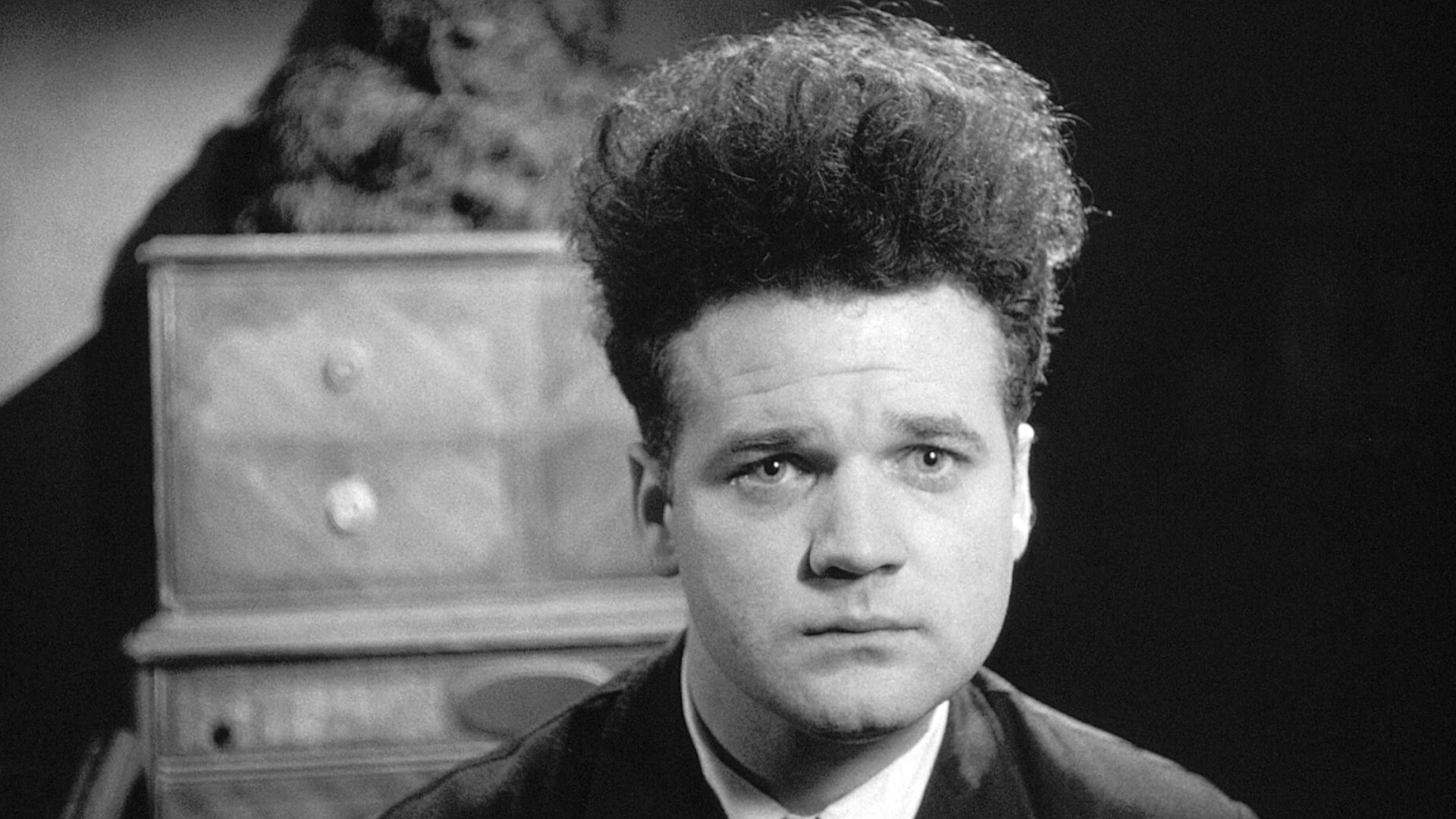
Year: 1977
Lynch’s first feature catapulted him into movie-making with a surreal assault to the senses full of droning soundscapes, expressionistic lighting, bizarre humor, dreamy musical numbers, icky sexual symbolism, stomach-churning body horror, and [checks notes] radiator ladies. The wonderful Jack Nance plays Henry, a new father just about holding things together amidst his grim industrial environment while being assailed by the unending cries of his poor mutant baby.
This being a very arty independent film, it initially opened to modest interest from audiences but is now considered one of Lynch’s best and is perhaps one of the strongest directorial debuts ever made. In 2004, Eraserhead was selected by the Library of Congress for preservation as a work of cultural, historical or aesthetic significance, and has gained a cult following from long runs being screened around the world as a ‘Midnight Movie’. With such a bold and brilliant inaugural picture, Lynch announced himself to the world as the singular visionary we all came to know and love.
2. Blue Velvet
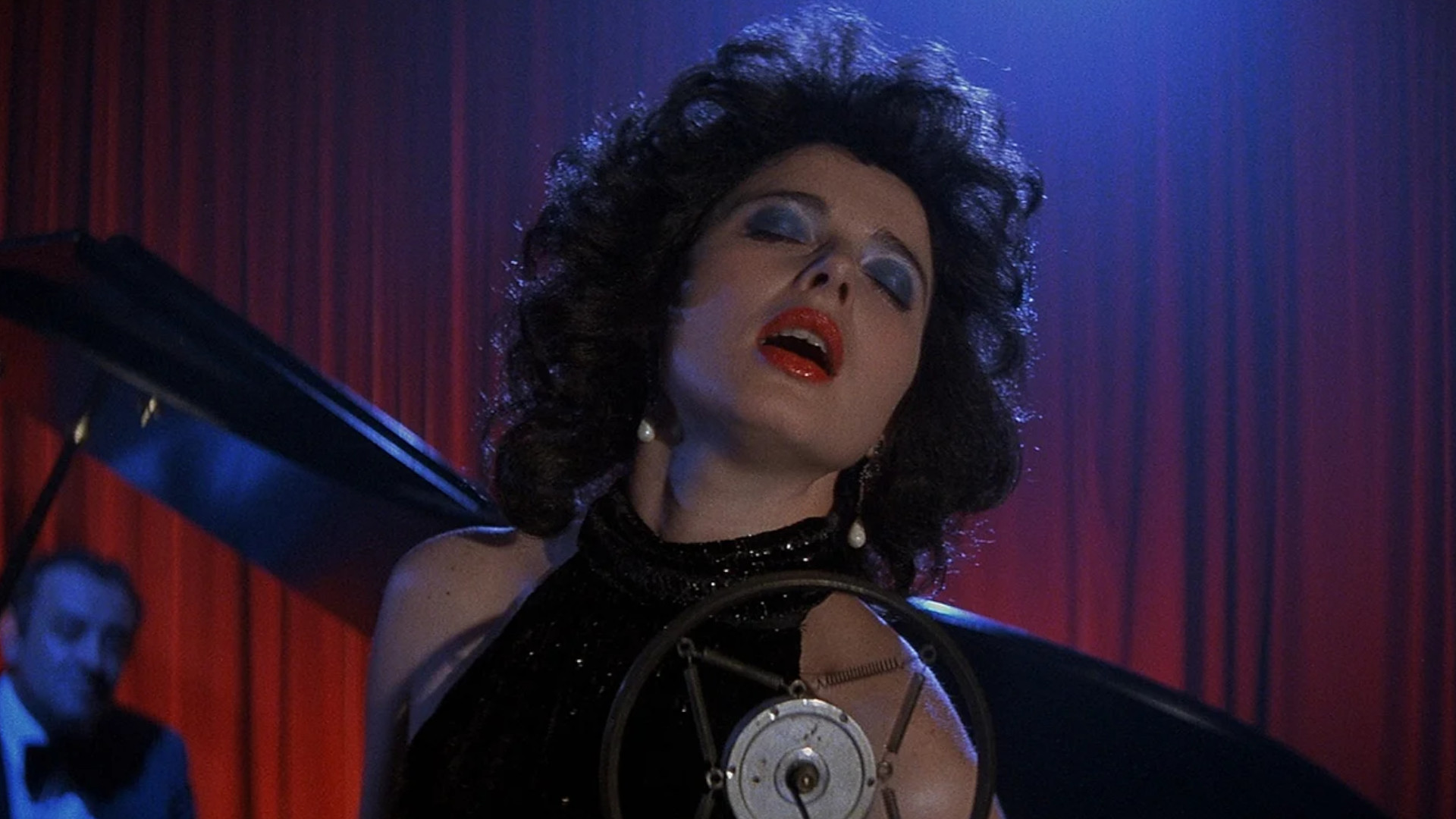
Year: 1986
Perhaps David Lynch’s most well-known film, Blue Velvet, took some of the surrealist elements of Eraserhead and mixed them with a pulpy murder mystery, throwing in great dollops of romance and psychosexual horror to create a timeless showcase of the great man’s talents as a writer/director. Kyle MacLachlan, another stalwart of Lynch’s work, plays Jeffrey Beaumont, a college student who returns to his small-town American home and becomes embroiled in a sordid criminal conspiracy and a love affair with a troubled lounge singer, played by the spectacular Isabella Rossellini. Laura Dern is superb once again as Jeffrey’s friend and paramour, Sandy and Dennis Hopper is simply terrifying as Frank Booth, the masochistic, gas-huffing psychopath at the center of the action.
Angelo Badalamenti is back on duty for the film’s hypnotic jazz-tinged score, and the film’s soundtrack – featuring, of course, Bobby Vinton’s song of the same name – appeared on Entertainment Weekly’s ranking of the 100 Greatest Film Soundtracks. Blue Velvet is a perfect slice of Lynch, spotlighting many of his essential themes and traits. A stone-cold masterpiece that may be his best film.
Read our five-star Blue Velvet review for more information on this classic.
1. Twin Peaks
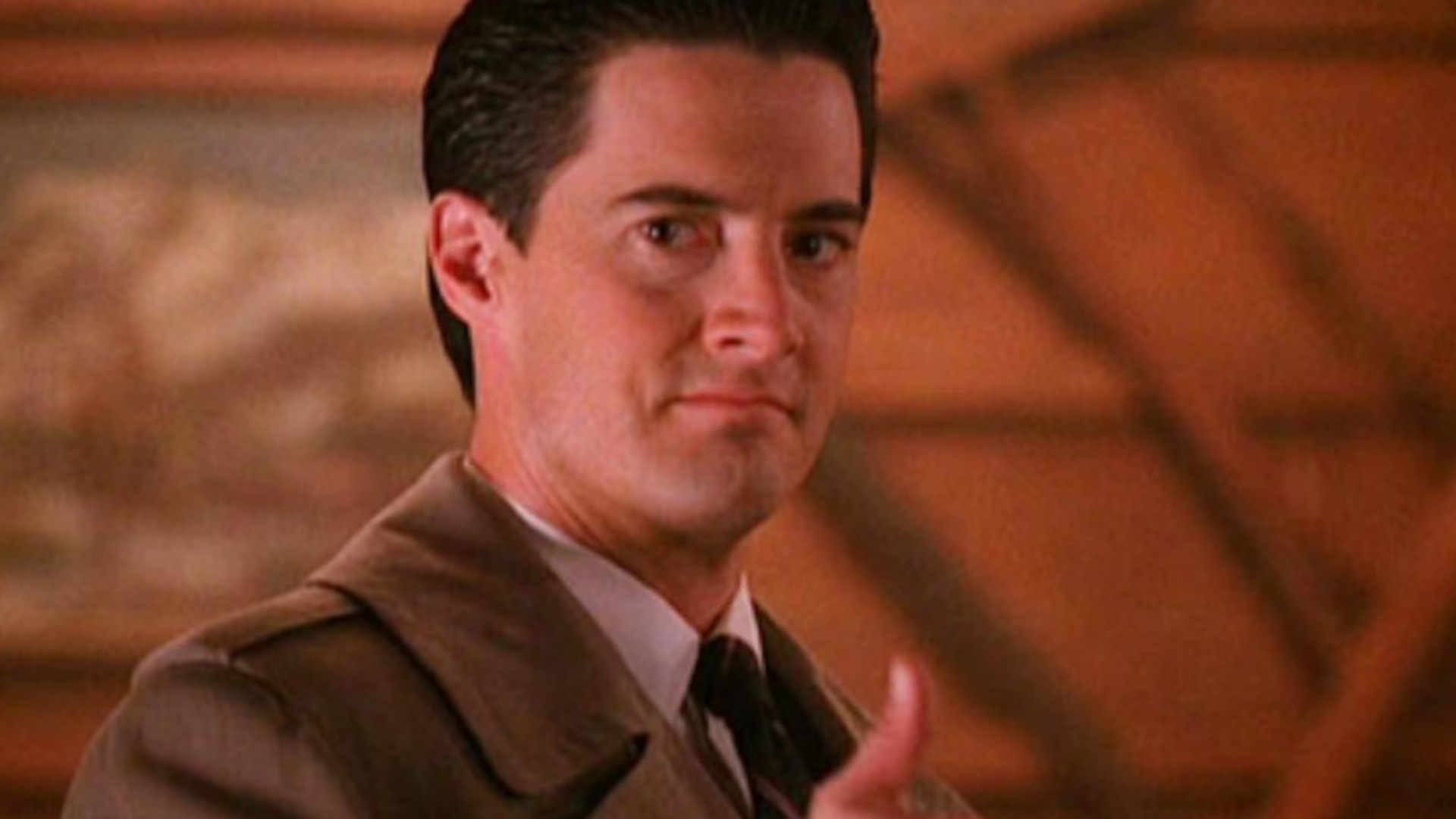
Year: 1990 – 2017
In 1990, David Lynch changed the face of television forever and, even amongst a filmography as special as his, it’s Twin Peaks that must be marked as his greatest accomplishment. Between the first two seasons and the show’s triumphant return in 2017 with… The Return, Twin Peaks wove the tale of the titular Pacific Northwestern town and its residents, particularly Laura Palmer, the teenage girl whose dead body is found wrapped in plastic in the first episode, rocking the close-knit community and sparking an FBI investigation and a tumbling of uncovered secrets.
With their mix of murder mystery, surrealism, comedy, horror, and soap opera, Lynch and his co-creator Mark Frost launched a phenomenon, and although the second season was somewhat troubled and less well received, Twin Peaks is now widely regarded as one of the best TV shows ever made. If you really want to immerse yourself in the world of Lynch, pour yourself a cup of damn fine coffee, grab a slice of cherry pie, and settle in for 48 episodes of genius.





